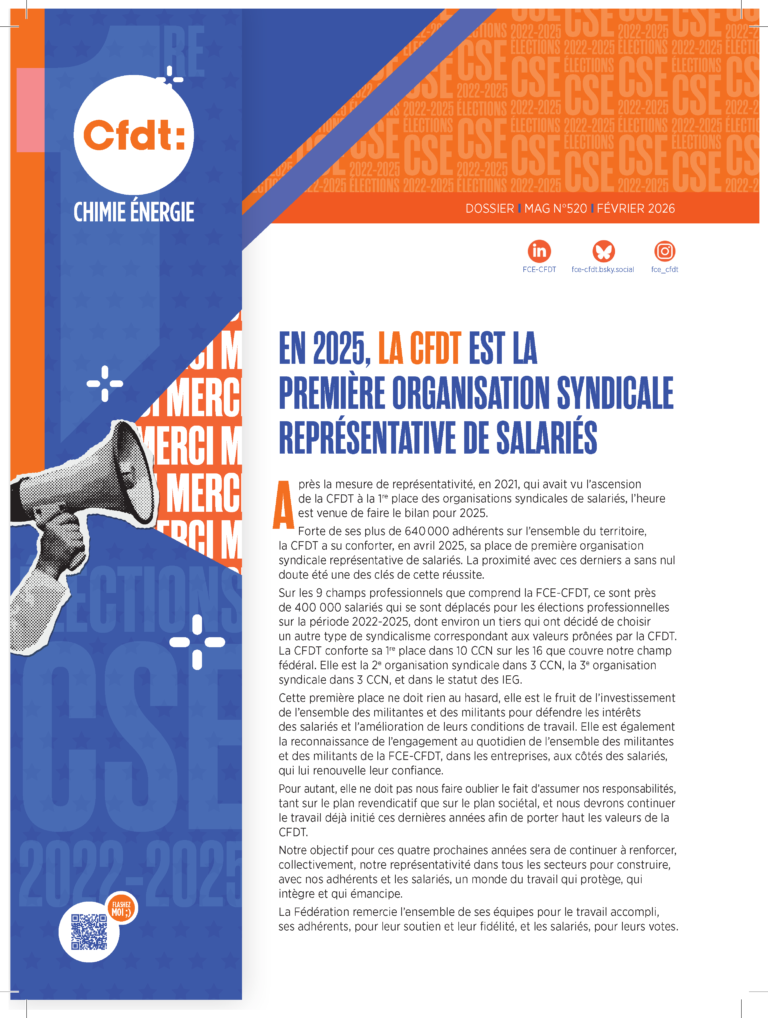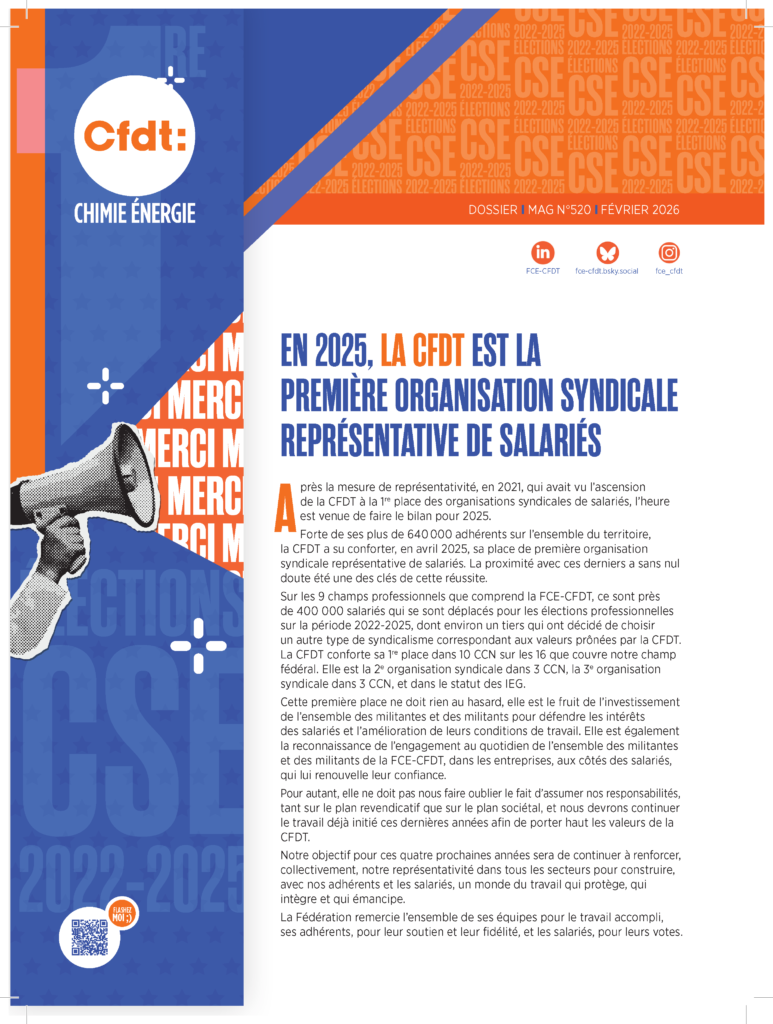The world demand in energy is going to have an important grow in 20 to 30 next coming years (some « experts » anticipate a doubly demand between 1990 and 2020). This progression will made exclusively out OCDE area, in developing countries and more particularly in Asia.
The natural gas and electricity will be main beneficiaries of this evolution; the consumption of oil would progress nevertheless in an important manner. Some countries of Asia currently exporting are going to become importing net crude.
Three main activities appoint oil industry,
×The production exploration that insures the discovery and the exploitation of deposits of oil and gas,
×The refining that produces fuels and basis of chemical oil.
×The distribution that organize the trade of different oil products, fuel, lubricants, domestic fuel, liquified petroleum gaz (butane, propane).
The first sector of activity concentrates the wealth of companies from the mastry of the oil annuity shared with producing countries. It is completely submit to the rules of international financials markets. Producers countries of OPEP want to institute a certain stability of prices around 25$ / barrel by a system of regulation of the production. The result remain uncertain because of the great volatibility of courses of crude due notably per volume oil « paper » that influence particularly the market.
In 1998 (out industrial costs) to the level of the planet more of 2000 billions $ issues of oil have been shared between producing states, consumer states and the oil companies. It is volume, 75 millions of barrels per day or 3, 75 billions tons per year.
The division of this annuity is made increasingly to the detriment of the second sector that is in a situation of competition very strong. Its profitability does not depend on its costs but of markets of crude oil and finished products. It pains to finance necessary investments for its competitiveness.
The last sector suffer in France and in some European countries of strong restructuring to reply to competition of the great distribution and to demands of the European commission concerning holding a share of market and declinations of environment and security conditions.
Four parallel dimensions explain today the evolution and difficulties of this industry.
×The random course variation of the crude has behaved most majors companies of the sector to realize the mega merger to restore the anterior profitability level in the sector of the exploration production.
×The distort of markets in Europe as compared to the offer of products, it is to tell the gap growing between the structure of the rifining and that of demand conduct to « laminate » margins of companies although the timid investments realized in refineries get some limit effects.
×The evolution of norms concerning environment has been made from sudden awareness phases to the opportunity of which policies and directions of companies take decisions without definite strategy in the long term.
×Differentiels of competition concerning costs, taxation notably, deprive french oil industry from a very important share of the annuity braking makes this the financing of necessary investments, particularly in the rifining.
These four dimensions are linked but they are not managed of coherent manner. The multiple actors (oil companies, public authorities, channels of distribution) intervene with clean logic and on different level. This global incoherence is, in the middle term, a threat for industry of the European rifining.
The FCE CFDT asserts that the job and salary costs serve as emissary goats to difficulties of oil industry, plans of redundancy do not act on the true causes, reduce teams motivation and make of serve the improvement of the remuneration of shareholders to short term.
After the reminder of the busy place by oil industry on the diplomate and political scene, this note examines the four dimensions that come to be reminded. It precise evolution on which the different actors have to intervene more in concerted manner. To the logic of the all liberal, the competition without obstacle, we propose to commit dynamics of cooperation between concerned actors so as to maintain oil competitive industry in the differents European countries taking into account the dimension of solid development.
AN INDUSTRY IN THE CENTER OF CONFLICTS
AND THE INTERNATIONAL CAPITALISM.
The importance of the energy sector in a country and the mass of capital that oil industry mobilizes put this industry activity in the middle of power risks on a national and international scale.
The oil is in the middle of conflicts in the world and channels of financing linked to policies of states influence.
That it concern conflicts in the MiddlEast, tensions between countries and nationalities of the ancient Soviet Union or the mastry of the economic development of the Asiatic continent, oil is behind a lot of conflicts that develop on the totality of the planet.
The mastery of energy manna
The mastery of energy is a major risk for the independance of nations, for their economic development. Oil remains one of the most consummate energies and the easiest to use.
Fears concerning his energy independance and the will of hegemony of United States on the world scene and their will to play, to their own count, the world policeman duties lead them to research the military and political mastery of the main area of exploitation and oil extraction.
They are ubiquitous in the MiddlEast and have led the Gulf war to keep this mastery. They continue to prevent Iraq to come to unbalance the producing country cartel organized by Saudi Arabia for the count of United States.
On the African continent, Americans have arrived these last years and begin to reduce the influence of France. Exxon and Shell are intervened in countries forsaken by the group Elf and or deceive by the French deplomacy.
In Asia, boycott campaigns are led against all investors (particularly TotalFinaElf) that are not coming from companies mastered by Americans. This area with strong economic development has particulars needs in the oil energy sector.
In putting oil questions under their domination, the United States give ways to extend their geopolitical influence to the five continents.
Making this, they preserve their own reserves oil, by using those others.
Finally, they give ways to weigh on prices of crude oil and therefore on the division of the oil annuity between producing countries and consumer countries. They are indirectly in measure to act on rhytms of economic growth in the differents area of the globe.
European countries have begun to react by reinvestment in Africa or in the MiddlEast as TotalFinaElf in Iran recently. As CFDT unionist, we have to claim a new shares to control on a world scale, in a manner that the States, in the continental organizations have their word to tell and that their democratie institutions, when they exist, could really associate their citizens to decisions that concern them.
The evolution of the world oil scene and the United States seizure on these questions compete to the representative democracy weakening.
Considerables financials masses and diplomatic risks in the private’s interests.
Capitals invest in the oil exploration and in the refining distribution are considerable. That has several consequences.
The first is that to reply to their needs of financial oil companies have been privatized through the whole world. They are companies that have benefitted from preferential manner of investments of Anglo-Saxon pension funds.
In return, these funds of pension make henceforth weigh on these same oil companies of the logical fianancials destinies to insure to shareholdres the best possible remuneration.
Consequently, oil companies are past under the cup of shareholders that have no democratie legitimacy, neither asserted strategie orientation while they intervene in a strategic industrial activity for the differents nations of the planet and that touches to the diplomacy and to areas of influence of the great powers. (They develop their own policy sometimes beyond the industrial and economic perimeter especially origin groups of USA).
It is neceessary to add to that very important oil mass « paper »: for a physical need of 130 billions $ we observe transactions 10 times superior. This speculation contributes to the lack of legibility, perhaps to the opacity of the market!
This opacity and this lack of transparency serves interest of influence systems that have to remain or rebuilt outside of all transparent national representation.
This state of fact is again worsened by the fact that areas of development of oil industry are situated in developing countries, in order that the oil product production is been a vital resource of export and financing is a crucial point in their economic development policy.
Thus the oil companies are detach in appearance of all national fastener and all diplomatic objective, intervene in unstable influence areas and enter in competition with policies of States.
To what title and with what objective TotalFinaElf operates in Burma? To what title and with what debated objectives democratically realized profits and systems of relationships establish by Elf have they detach to serve to facilitate the frigates sale to Taiwan or to pay salaries, African officials?
The capitalism history thus made of the mastery of some markets and some activities through continents for the power of some.
The FCE CFDT question about the legitimacy of investments make by oil industry in the differents continents and or objectives continued. The own funds profitability can not serve as alone justification. The democracy who prevails in our country and values carried by our unionism, require others replies.
We have to put in debate these objectives so as to insure our vocation to develop the democracy and to find a parade to the deconnection that has been established between states and oil companies.That will be made more easily on the European scale.
In this area, direct contacts with union militants of concerned countries can allow to develop the unionism and the democracy. It is a priority objective to us if we want to weigh on objectives and concrets results of oil companies.
To obtain from ethical commitment agreements between oil companies and union federations will go in the senses of a classification or investments and a display of a real will of transparency. This would be also a step to reach the solid development objective carried by the FCE CFDT.
THE INTERNATIONAL CONTEXT
OF THE PRODUCTION-EXPLORATION:
THE VARIABILITY OF CRUDE QUOTATIONS.
The technical progress have reduced costs of the exploration / production that is past from 20$ in 1981 to 8$ by barrel in 1998. They allow offshore oild fields (in North Sea, for example) to be competitives by report to zones of exraction to weak costs of the MiddlEast, both during the decline of prices of the crude (between 8 and 15$ / barrel) and during of the strong rises (25 to 35$ / barrel in 2000).
Stock:
Proven stock
×140 billions tons for crude oil, is 42 stock years to the current production rhythm,
×158000 billions m3 for the gas is 60 stock years of gas to the current production rhythm).
Since the oil shock of 1973, richest countries and oil companies have continued a policy of exploration, development of their reserves and placement in service of deposits in new areas, particularly in North Sea.
Prices reach by the crude having allowed financing the new technology implementation and the exploitation of deposits whose cost of production was higher. This oil company policy has allowed finding a more important diversity of offer of crude.
The production of OPEC member countries is stable while they hold 3/4 of proven reserves of the world (the 6 countries of the gulf: Iran, Iraq, Saudi Arabia, Qatar, Koweit, and United Arab States hold some 2/3.
The current production of Russia is weak as compared to its potential. The progression of world demand is especially covered by country not OPEP. This situation is capable to perpetuate before a return of operators to OPEC (in contradiction with estimates experts that estimated that alone the MiddlEast could face a strong progression of demand of crude).
Oil companies have used this diversity of supply found to establish, by a new policy of contracts, more too short term, a division of the more favorable annuity. The analysis of contracts passed between companies and states testifies this research of investment profitability.
Today, the exploration cost/production increases to 8 dollars by barrel on average with however of important divergences between the MiddlEast (1$ – 5$) and the rest of the world (5$ – 10$). One measures thus the important financieal mass that distribute companies, even in a context strongly disturb of prices of the crude. It is necessary nevertheless to weight that according to the geographical area and not to forget that the open margin as compared to the price of the crude is to share to 80% for states and to 20%, for oil companies.
This political lead on two to three decades had rendered the offer more abundant than demand entailing a fall of prices of the crude to 10$ the barrel in 1998. The will of oil group being been increasingly independant possible of prices of the crude have restructureted the channel to decrease costs and to increase the profitability of the channel. The ascent of rates in 2000 has allowed to companies to benefit full of these restructurations and brings them supplementary capacities to continue their adaptation to their vision of the future.
All the more as that an international privatization movement has develop since fifteen years and has placed a great oil company past under the financials and shareholders cup that request an improvement continues the profitability of investments.
This will to improve the profitability explains the recent movement of merger absorption and restructuration of the oil sector. Merger of EXXON MOBIL, BP AMOCO TOTALFINAELF, Seek all to lower fix costs exploration-production and research.
The costs reduction (started in 1986) based essentially on the restructurations, on technological improvements and on the development subcontracting reach its limits.
It is necessary hence forth totalities greater to be able to continue to rationalize but also to constitute new financials authorities. The small are condemn to lose their independance or to disappear.
This wave of mega merger self feeds since the first operations release some news, more defensive in their idea to avoid to be eaten by larger than self. It is the case of TOTAL operation with PETROFINA the ELF Aquitaine.
These mega merger could accelerate the restructuration of the refining and activities in endorsment (distribution, petrochimie) by the available resale of some actifs.Thus alliances conceived to make profitable the exploration-production are going to drive to the placement in sale of actifs on the endorsement, as for example the placement in sale of a part of activities of refining-distribution of TotalFinaElf in United States.
The current tendency in United States to withdraw of oil companies in the endorsement and particularly in the refining has entailed the birth of companies specialized in the refining. For a lot of them, their sizes insufficient to insure linked to constrainsts envirenementals what will not lack to have problem to term for the supply of products refined to norms.
Reduction of budgets to all goes
In this context, the race to the reduction of costs has accelerated in the area of the production exploration, that it concerns to finance acquisitions or that it concerns to protect a hostile OPA.
Companies have reduced their budget of research of new deposits. Oil platform are closed or threatened of closing down in sea of the north. Elf Aquitaine had committed a plan of cost reduction on establishments of Pau and Paris that continues after the merger with TotalFina.
Analogous questions are posed as for investments in some countries: BP in Colombia, TOTALFINAELF in Burma or Shell in Nigeria. To note that all companies are not lodged in the same trade name, most important companies being favored as compared to the oil independent.
New relationship between producing country and oil companies
To average term, the determinant economic and geopolitique will make vary prices of the crude of random manner. Fault of regulation, adjustments will be make manner erratique and by to knocks strong, the example of the end of 1999 and begun 2000 is there to demonstrate it.
The strategy of actors will remain therefore stalled on the short term. In this hypothesis, there will be certainly a diversification of actors that is going to conduct:
×A modification and a segmentation of the competition in three categories by size (the great majors, international regional companies and the small independent).
×A development of cooperations between producing countries and the most important oil companies.
Because the variability of courses of the crude is going to accelerate the producing country opening (Algeria or China) to the market by increasing the possibilities of development for the oil new group that come to constitute. This evolution will decide the investments budgets.
Whatever is evolution, the landscape has changed. It belongs to us to consider the situation in its totality in a framework that can no longer be hexagonal, neither European. That one wants it or not, oil industry is completely submitted to rules of international financial markets. That demands that the unionism masters some rules to adapt its strategy and its claims and to avoid that social questions are exclude all reflexions.
The natural gas: an energy requalified
The natural gas has long been considered as a fatal resource: to produce it, it is necessary to have commercial proximity outlets or heavy liquefaction investments and transportation.
Gigantic ressources of gas and constraints environnementales (norms and planet warning) bring a net policy change and some merger have not others purposes that to increase its share in the production and oil group reserves. It results some research of outlets and many exploration and placement projects in production of deposit (Nigeria, Iran, for example).
By its abundance and its advantages in term of environment, the gas will take a extensive share in an economy where the solid development take a great importance.
Furthermore, the opening of the market of electricity in Europe and technological progress will allow the development of the cogeneration.
The CFDT congratulates this evolution to an increase of the utilization of the natural gas and will emphasize its action in favor for solid development in the energy area.
In this exploration activity-production, the FCE CFDT claims the maintenance of research efforts of new deposits, the reinvestissement of wealth produced in the development of new exploration and drilling techniques and in the development of using the natural gas.
We act in link with union organizations others countries in others continents in order that french oil companies apply the same social rights to the totality of countries where they operate.
In this senses, the FCE CFDT will act beside the group TFE to construct an ethical agreement entering in the framework of orientations of the EMCEF decided to its last congress in Blankenberge and to confirm to the general assembly of 3 and 4 May 2001 in Berlin.
REFINING: DISASSEMBLE BETWEEN DEMAND
AND THE INDUSTRIAL TOOL
The progression of the consumption in Asia has absorbed important surplus of the production of countries of the MiddlEast. This zone mobilizes a growing share of oil company investments. The numerous projects of refinery construction in this area are liable to modify to term the current balance concerning fisnished products, except if the progression of the consumption is superior to the placement in service of production capacities.
Capacities of refining of the ex countries of the East is represented an important risk of relocation for west European industry, subject to international financings to put them in order.
USA have profited the installation of gasoline reformed, to adopt measures imposing specifications very strictes for imported fuels, and anticipated an obligation of compound incorporation oxygenated extracts from renewable sources (agricultural products). However, this policy has rendered more obsolite the American refining machine that has not evolved to the rhythm of norms. To put to norms will not be able to be immediate, what encourages a current of gasoline import coming from the European market.
EUROPEAN REFINING SITUATION
European situation of the refining capacities of distillations have been strongly reduced these last 20 years (of – 17% for Spain to – 50% for France: 171 MT in 1977, 84, 6 MT in 1989 and 99 MT in 2000). The capacity of cracking increases. The performance of operations has improved but remain insufficient in Italy, in Germany and in Spain.
The current utilization rates of refineries is close to 90% while it adjoined 60% in 1983. Since 1986, there has not been closing down of site, some groups have sold refineries (in general to producing countries: Libya, Koweit, etc). Today they function almost in full capacity, without having modified the market.
This is only recently that the appearence of overcapacities in gasoline has behaved some companies to close some refineries in Europe. It is necessary nevertheless to note that there has been more announcements that real closing down.
Because the concept of overcapacities European is not truly proven. It notices more the speech that the economic reality. The profession does not speak elsewhere more of these overcapacities.
The overcapacity observed is not comparable to that of the beginning of years 1980 because it does not fit to an overcapacity global but the partial overcapacity by country and by products.
The situation between differents countries is contrasted, some possess the overcapacity of notorious refining (United Kingdom, Italy) when others are under capacity for some cups, as it is the case for France.
On the other hand a risk of overcapacity in gasoline is real in Europe, but its evolution is difficult (it varies from 30 to 60 millions of tons according to experts) and remain weak in look of the global volume. This surplus justifies if one takes account inevitable to knocks conjoncturels that do not have to put causes some our stock security.
Four reasons at least explain the appearance of this overcapacity in gasoline.
×The diesel. Investments and constructions of units to against time to manufacture the necessary octane for the replacement of the gasoline without plomb and the manufacture of fuels to 98 of indication of octane (Eurosuper or Superplus). These investments were necessary to maintain the volume of gasoline production while the consumption fell regularly (In France: 18, 8 MT in 1988 – 13, 8 MT in 2000) to the profile of the gasoil.
×The strong increase of the production of crude in North Sea increases the tendency to the overproduction of gasoline since it is especially constituted of crude light and that incites oil companies to maintain the rate of refining and the production of gasoline at a high level to follow this production.
×Beyond problems of taxation differential particular to some countries, The European Cars Park is deeselise.
×Finally, the cars constructives (particularly German) are offensive concerning research to reduce the consumption of fuel engines.
Face to this surplus risks in gasoline, the FCE-CFDT underlines that the closing down of refineries does not solve in anything the question since the overcapacity is not global. It estimates that on this point employers are not credible.
Indeed, it is more expensive to close a refinery that to make it work on balance. That can protect somes: But especially, a tanker has not interest to close alone, because he endures entirely the cost of a closing down, while he gives to its competitors market shares that he possess.
Force is to observe that oil companies, while holding the speech on the overcapacities of the refining machine, have no ceased to rationalize their tool and to increase their capacities of production.
Besides, the speech on overcapacities in Europe considers Europe as a waterproof zone on the contrary, to the look of exports to USA and by taking in account the possible imports of the MiddlEast, it is necessary to consider Europe as a pervious area.
According to FCE-CFDT, there exist an excedent of 8 MT in Europe, that export some close to 7 MT, particularly in United States. The East area of United States is deficient and close to 40% of imported products. Close to a third of English production is destined to United States. This situation remain and even amplify in the future.
Because the evolution of norms environmentales and specifications of products supposes too important financial resource for a placement to American refining norms of 2004. The analysis is the same for Canada, Venezuela and Virgin Islands.
Thus, for the Europe zone/OCDE, there is no global overcapacity of refining and the commercial scale is balanced.
The posed problem is not therefore that overcapacity in Europe, but of competitiveness. That generates necessarily a logic reduction costs that has to be mastered.
On the other hand, the offer is not adapted to the downward decline of demand in gasoline. It is necessary therefore to invest in conversion units and hydrocrack to produce more diesel oil. It concerns both to strengthen the competitiveness of the European tool face of future imports of the MiddlEast and to insure a sufficient profitability.
What puts the question of the financing of investments in an industry whose margins are often weak, perhaps insufficient. We are returned in a period of best profitability. This transfer of investments is no longer justified to our eyes (if so is that it has been in the past). The recent decision of TotalFinaElf to rebuilt a cogeneration unit on its site of Gonfreville leaves the whole choice between several solutions to eliminate heavy cups.
Nevertheless, since always oil companies accept to limit their profit rates in the rifining to remain present in the oil channel. In this industry the amount of immobilizations is very important, but decisions are strategics.
But it is not sure that this position does not develop rapidly. Already some groups are withdrawal of the distribution particularly in the heating as BP that sells its BP fioul services branch.
On this subject, we have to beat and insist that the distribution refining can not be an industrial activity as an other. It is a strategic industry for the different countries of the European Unuion. Its profitability does not have to be dissociated of that of the exploration-production that stays strongly profitable. Otherwise, the job and employees who will suffer.
This is what we pick up today, it is the lack of necessary strategic visibility to decide investments in the long term for the refining, for example on choice of the different countries between the diesel oil and the gasoline and policies that they impulse in the sector of transportation or the constructive cars.
The lack of coorporation between the different oil actors that develop different strategies according to their geographical implantation (regional, national, continental or world) penalizes also the totality of the profession.
This ideology battle around the so-called overcapacities of the European refining is essentiel for the job in the oil sector in Europe. Investments that will be realized in years that come depend on the level of the job in the branch.
Refining French situation
Problems of the European refining exert strong pressures on the french refining since that markets have been liberalized to the oil company demand; but the french market is globaly in undercapacity.
On the other hand, specific aspects to the french situation worsen the gap between the structure of demand and that of refining tool and favors gasoline surplus.
The high tax differential between the different products favors the diesel oil to the detriment of gasoline and strengthen a fuel demand for that the tool french refining is not adapted. The production of gasoline is excess of ( 3 millions tons) while we import to satisfy demand in diesel oil (approximately 8 millions tons). The construction of manufacture units of ETBE (fiscally helped) increases the phenomenon of overproduction of gasoline.
The led policy further more by the cars constructive in favor of diesel engines has worsened the situation.
The lack of outlets for the fioul heavy (almost absent of cogeneration system) strengthens the appeal for the utilization of crude « light » that favors the production of already excess gasoline.
These aspects are worsened by the competition of the great distribution that can import from Rotterdam products to the better price and prevents all market regulation to the national level. To recover market shares, french tankers have been involve in a policy produced concerning gasoline (gasoline without plomb, clean gasoline) but that has not sufficed to stop the progression of GMS that represent in 2000 more of 55% of the market of fuels.
Concerning refining, the FCE-CFDT challenges for a long time with reason expatiate it oil companies on the overcapacity.
It requests to European and french public authorities, the definition of a political coherent manufacturer concerning fuels allowing manufacturers to decide adopted investments.
It claims from now investments of diesel oil production in a manner to reduce the gap between the offer of products and demand of consumers, essential condition of the competitiveness of this industry and the durability of job that it represents.
It claims necessary investments for the placement to norms for fuels less pollutants, in order that the french refining tool, and beyond European between come into the era of the solid development.
THE ENVIRONMENT
The Internationale situation
Problems of environment have only little weight in decisions of developing countries governments.
The innovation in the sector of energy (implantation and new technology diffuseness) can not rest on the alone logic of the market (oriented to the short term), neither on the whole state that has first a regulatory sole and arbiter in the elaboration of strategies in the long term.
It is the responsibility of the oil profession to fix objectives and priorities concerning environment so as to insure the competitiveness of fossil energies as compared to others sources of energy.
Too often decisions concerning environment are solely taken according to conquest or protection strategy of some markets.
That has been recently the case for gasoline reformed in United States. However, gasoline reformed in United States have introduced new norms that are destined to be develop in Europ under the pressure of the public opinion, particularly educated in Nordic countries.
IN EUROPE
Harmful unit rejects of refining have a lot decreased since a ten of years. Fuels, the technology of engines have equally made considerable progress, but the growth of transportation has lessened these improvements and important evolution remain to make in this area. Measures to take do not have to provoke relocations.
In Europe, France is one of the countries where efforts concerning environment in the sector of oil energy are weakest, Germany and Nordic countries particularly are in advance on us in this area. The sale of fiouls high content suffers some in penalized to see forbidden in some of them.
For example
With a year of advance distributors refiners Germans have put on the market a diesel oil to 0, 05% of suffer (against 0,2% in France). Two greater distributors have launched a super more container less of 1% of benzene (for a norm of 5%).
The incorporation of biocarburants (green fuels), that improved the quality of rejects (oxygenation) don’t have to be made only beside statements, energy, ecological, economic and industrial.
The liquified petroleum gas (GPL) is currently the stemmeing fuel of oil it less ominous for the environment, its consumption could have progress in fleets captivate but it wears a negative image on the security linked to the risk of explosion, to the prohibtion of lots and tunnels access. Today, publics authorities companies do not display real will to rectify this bad image.
In this framework, the new norm question environementales is posed.
The new Europeans norms environementales
The European commission has committed in accordance with fixed program objectives aiming to the improvment of the environnemental. Oil car 1 and 2 have for purpose the new specifications definition of products for 2000 and 2005. In this senses the commission has estimated the cost of the implementation of them these directives for manufacturers. Of more the world charter on fuels (the content in sulfur is on-line aim) and the ACEA (car) have for objective the placement in conformity and the world decisions respect.
For the FCE-CFDT, it is clear that costs approach of investments/advantages for the environement has to guide decisions taken by states member. It is not possible to justify investments very costly which brings only a little reduction of the pollution. However, the new norms are liable to strengthen the competitiveness of refining industry.
The new norms in Europe will not be as restraining as what has been told. Because the cost stated does not integrate technological evolution (for example on catalysts). Necessary adaptations will be used as tool of rationalization whose one does not know the extent. Without counting that adds an effect of competition in the application of norms as competitive advantage.
The debate on costs is equally falsified by the oil group attitude that overestimates them very strongly to lead actions of lobbying ominous to the debate. It would be more judicious to negotiate a calender of application that to shout to the collapse of the refining industry.
The CFDT proposes therefore to adopt questions of environnment in more positive attitude and more offensive. More positive by presiding over desirable evolution for the future of oil industry and by integrating the datum environnemental in their decision concerning the fiscality, more offensive by making an element of political manufacturer and oil markets regulation.
FISCALITY, INVESTMENTS, JOB, WHICH ANNUITY SHARE ?
Oil industry is a highly speculative industry and whose profitability depends essentially on markets. Margins are as very different from sector to the other to the even breast of the oil activity, between the exploration-production very profitable, the refining who it is on the average a lot less and the distribution whose profitability varies following products.
The fiscality and costs of production intervene, but to the margin, in each of concerned sectors.
Exploration / production
As all producing country, the French state and local collectivities appropriate taxe on the crude extract.
Concerning exraxtion crude, the French mining area is secondary.
According to the Dhyca, producing countries income are following:
×Profilics zones: 10 $ by Bep (OPEP countries)
×Ancient or difficult zones: 2 $ by Bep (USA, Australia, West of Europ)
×Others: 5 to 7 $ by Bep ( South East of Asia, Western Africa)
In comparable exploration zones to France, average deduction correspond to 67 – 72% of the production, against 52 % in France.
Refining: Margins do not depend on the productivity.
Prices (Therefore margins) are first determined by international rates independently of costs of production. Gains of productivity and the reduction of costs on installations allow improving accounts of companies (the crude exploitation surplus) and the performance of sites but they are not liable to influence margins.
Margins of refining are globally weak in the world and do not allow to finance investments. The refining is a sector by deficient nature. Despite official speeches, oil companies do not manage the refining activity to short term, because, beyond the immediate profitability, draw political and strategic reasons.
The following argument: « French price out taxes of fuels are among lowest of Europe », developed by employer chamber and oil companies is incompatible with the placement en exergue of additional cost supported on the French territory (professional tax, port tax, environmental constraints, etc.). Thus important volume of exported lubricants shows performances of the French refining and its competitiveness in Europe.
What counts especially, it is the adaptation of the tool of refining to demand, its suppleness and ways of financing that are allocated it to transform into permanence.
This demand supposes that companies could work in a stable regulatory environment on the long term and defined in consult with the public power. It supposes also that oil companies and their shareholders do not consider the refining as an essentially profitable activity but a strong strategic dimension.
The fiancial results of the refining depend first on the market: They are independant of the productivity and do not rest almost on the cost of the work.
Industry of the refining demands today more industrial investments to adapt to the demand (deep conversion, hydrocrackage) and a regulatory environment stabilized to average term to insure the financing of these investments.
Distribution
Under assaults of the competition of the great distribution, margins of mark systems are, in France, are the wakest of Europe. This « badly French » develops today in United Kingdom. The will of streamlining of oil group and the impact of the competition of the great surfaces generate heavy consequences of the number of stations, on the networking of the territory and on jobs, induced.
×in 1975 / 47.400 occupied stations / 120.000 employees
×in 1995 / 19.000 occupied stations / 50.000 employees
×in 1997 / 17.500 occupied stations / 47.500 employees
×in 2000 / 16.230 occupied stations / 44.000 employees
It is important and urgent to stop this drain.
Furthermore, the competition of the great distribution laminates margins of distribution, depriving tankers on the
hand of necessary investments financial of refining.
The great distribution and consumers capture an important part of the annuity to the detriment of the future of the branch, the plug in account of the environment and the job.
An obligatory productive regulation the appearance of a clean accountancy to service stations and imposing the attributable cost list would allow to clarify and to sanitize conditions of competition between the distribution of fuel in great surface and that of systems of tankers.
Fiscality of fuels
The taxation of the gasoline in France and a great part of Europe is raised: In 15/06/01, for the super SP 95, the taxation is 75,63E/hl in France for a European average of 75,56E. Countries that exceed the French taxation are Denmark with 75,66E, Netherlands with 80E, Finland with 77,99E, the United Kingdom with 93,86E by hectoliter. This problem and the differential oil diesel/gasoline drive to dieselation accelerated of the park car (+ 50% in 1995).
The experience shows that the European tax harmonization is in step, it will undertake by the high. France situates now in the European country average for TTC price of oil products. In January 1996, 10 European countries on 15 have increased the fiscality on fuels and fiouls.
In 1999, the government had decided to reduce the differential by increasing the TIPP (Internal tax on oil products) of 7 cts/1 on the gasole each year. The brutal price climbing of the crude in 2000 has entailed the suspension of this measure.
To balance the VAT on fuels that is directly proportional to the increase of prices of the fuel, the government has instituted the 1st October 2000 the TIPP « floating ». On the basis from a point of balance to 25, 44 $ by barrel, the TIPP can vary to the decline or to the rise.The research target being to balance ressources of the State and do not increase them during that oil prices climb and conversely.
Heating (domestic and heavy fioul)
Out individual investments and commercial practices, the domestic fioul is competitive by report to the other fuels.
In March 2001, costs were following (by equalling kWh PCI and out TTC)
×26, 30 These for domestic fioul
×26, 00 These for natural gas
×70, 09 These for the electricity
The technique used during the construction of accommodations renders the economically irreversible choice to long and cancels makes the competitiveness of energies. Indeed the Fod necessitates a heavy investment (boiler, tanker and conduct of smoke).
Concerning the differential of taxation between fuels, it belongs to the collectivity to favour sources of energies as compared to others, according to political criteria, economic, ecological, services, etc.
Between 1991and 1999, the number of new houses having been equipped of a central heating to the fioul has been multiplied by 3. Endowed ancient houses with central heating to the fioul has progressed of 4, 5% between 1998 and 1999.
In 1999, the share of the fioul has reached 34, 6% the market of heating works against 32, 3% in 1998 is a growth 8,8% while the market progressed only 1,5%. The impact of the climate is important on sold volumes; the softness of the last winters has provoked a decline of demand, as the extension of gas systems natural.
The small part of heavy fioul in the oil product consumption in France (10% against 20% in Europe) is linked to the level of development of the nuclear and to the taxation stronger of heavy fuel-oil that the gas and coal.
Necessary investments for the transformation of the heavy fioul are expensive and current margins are insufficient to finance them, « wile » to lighten costs of crude are going to reach limits of feasibility, the deep conversion construction (or equivalent) is only retarted.
The new legal dispositions (taxes reduction) concerning the liquefied petroleum gas pose the problem of the intervention of public authorities without dialogue, neither real industrial examination of the concerned branch, to the risk to provoke and to worsen the gap between the offer and demand.
For the FCE-CFDT a modification of the taxation on fuels modifying the balance of demand between the different fuels, must to lean on a strategy in the long term and to be made in dialogue with oil industry to avoid a gap between the offer and demand and to allow adaptations of the tool of refining.
SOLID DEVELOPMENT: RISKS OF OIL INDUSTRY
Oil industry wears largely a pollutant image, for its industrial practice as well as for the product itself and its derivatives (fuels, plastics, etc.). It wears equally a diverse social image that places its employees of developed countries to the high of the scale of the salaried but leaves these some producing countries in conditions more than doubtful.
Hydrocarbons carry a big responsibility of the effect of green house by the reject of CO2 during the combustion of hydrocarbons.
The access to reserves of oil is behind well of conflicts and the exploitation of deposits has not always positive fallouts for populations of producing countries. The financial manna being well often reserved a number restraints capitalists and executives.
To make evolve its image oil industry is going to organize its communication and woven of relationships with the ONG to anticipate criticize on consequences of its action. It is for example the case of Shell on its project of pipeline connecting Bolivia and Brazil or it has consulted ONG for its works to the breadth of the forest.
It is again Total Fina Elf that announces its commitment for the respect of human rights that will decline on the refusal of the work of children or the obligation of the respect of security rules subcontractors and co-investors.
Oil industry is as aware as oil energy is brought to be replaced to term brought others less pollutant and durable. Great companies as BP or Shell organize already to be present on its emergent markets. Today, the question is to modify the nature of the production of energy but absolutely to cancel it. They wish therefore to be ready for the position on all energy market what than it is.
The energy future will remain therefore concentrated in the great energy groups, the evolution to energies less pollutant, which will have no « sweet » than the name, if the debate on their control is not democratically organized. This will be a major risk of company for 21st century and the application for a real solid development.
Oil has its entire place in the research concerning particularly fuel batteries.
For the FCE CFDT the debate on the solid development can not be confiscated by energy companies. Employees of its industries have to seize some and to open it to the other actors of the company (policies, ONG, associations environementales, collectivities, populations).
For the FCE CFDT it is essential to construct tools of consequence analysis brought by choice of such or such energy. To make this, it is necessary to assignment the IFP organizes almost public to participate in the elaboration of indicator.
For the FCE CFDT it remains evident that oil energy and gas will be again very important for the next decades. It is necessary that the orientation of the research allows to continue using hydrocarbons by reducing again very strongly rejects polluting.
For the FCE CFDT it is necessary to improve the transparency of consequences environementales of the exploration and the oil production. It is necessary to develop the expertise and the audit external in term of health, security and environement.
CONCLUSIONS
In 1985, oil companies have obtained a liberalization of the French oil market. They are hence forth taken tortures some between a market dérégulé, without pilot and a little hexagonal industrial tool flexible by nature. They are to the plug with a competition that they have fed and prevented today to finance necessary investments for the adaptation of their tool, regional, national, or European.
French oil industry shows in very clear manner that a market can not straight alone. The under capacity in diesel oil, for example entails no shortage, prices remain low and prevent all investment aiming to produce more in diesel oil.
Instead of to straight act the market to the European scale, these Diaforus of the liberalism request always more deregulation.
Bad again, with the enthousiasm of converts of fresh date, responsibles believe to find their salvation by segmentation the industrial channel and by making carry their efforts of productivity sector by sector, while te competitiveness will result especially from a global synergism inside the channel and with sectors that it is connected.
These men of finances apply criteria short term of the grant holder market to an industry that demands long term choice.
To them, what make before all problem, it is the industrial tool, with men that make it walk, not enough supple and flexible, not enough profitable and efficient, financially speaking.
They have no ceased to reduce it by successive social plans and threats of closing downs, continuing the liberal dream of financial profit products without material activity.
For FCE CFDT, it is great time to break with this insane logic and to return in process of cooperation between the different actors, so as to take some counts interest of the different parts and to define what could have be the general interest in oil industry.
×The plug in account of the environment and the depletion of natural resources,
×The job and the training of youths,
×The peaceful mastery of sources of energy to the international scale.
For FCE CFDT is essential to invest in Europe to perpetuate in the long term industry of the distribution refining.
Investment to:
×Adopt the refining to the evolution of demand (to increase the production of diesel oil
×To transform heavy fuel-oils (to go to the deep conversion or equivalents processes)
×To create and produce in European refineries of new fuel cleaner ecologically and to anticipate thus the competition of substitution energies and while rendering more difficult current product imports.
×Research development it by orienting it to new utilizations in the chemistry channel.
×To develop the cogeneration and electricity production, by industrials associations.
To maintain a percentage of high consolidated outlets to make more secure the production refineries and to recuperate the margin on the totality of the oil chain.















